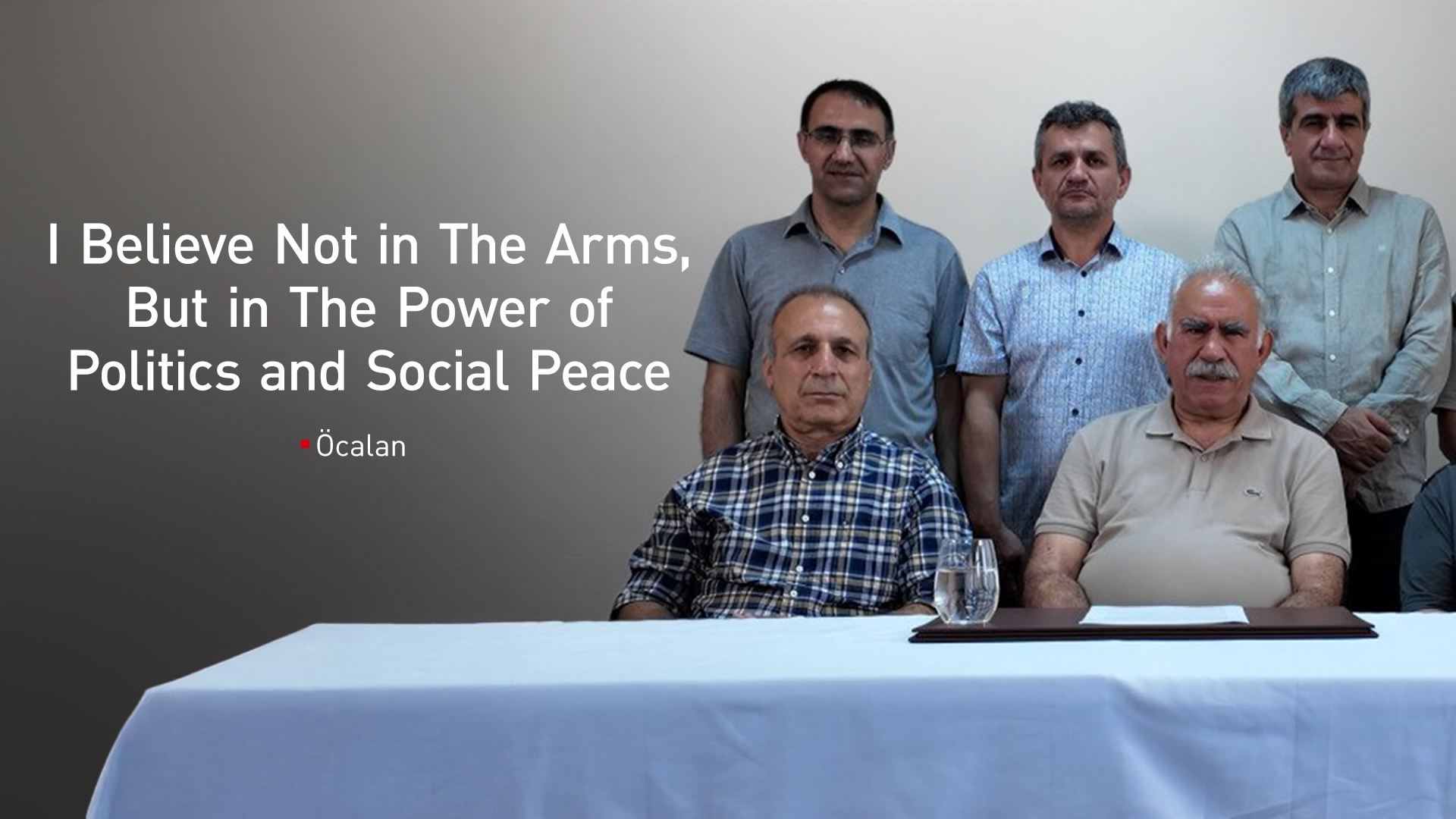Abdullah Öcalan Declares End to PKK's Armed Struggle
Jailed PKK leader Abdullah Öcalan has called for the group’s formal dissolution, urging a shift from armed struggle to democratic politics and peaceful coexistence. In a June 19 video, he declared the PKK’s goals achieved and proposed a new "Manifesto for Democratic Society."

By Kamaran Aziz
ERBIL (Kurdistan 24) – In a landmark video message dated June 19, 2025, jailed PKK leader Abdullah Öcalan issued a comprehensive call for the formal dissolution of the Kurdistan Workers' Party (PKK), marking a decisive break from five decades of armed struggle and advocating for a full transition toward democratic politics, law, and peaceful coexistence.
The full text of Öcalan’s message has been obtained and published in detail.
Addressing his comrades, Öcalan reaffirmed his continued support for the “Peace and Democratic Society” initiative first declared on February 27, 2025, stating: “I continue to defend the call for ‘Peace and Democratic Society.’”
He hailed the PKK’s 12th Dissolution Congress as a historic response to that call, saying: “You provided, with the right substance, a comprehensive positive response to my call. I attach historical value to your response.”
Öcalan announced that he had drafted a “Manifesto for Democratic Society,” which he described as a transformative document intended to replace the decades-old “Manifesto of the Road to the Kurdistan Revolution.”
He emphasized that the new manifesto holds historical and social value not only for Kurdish society but also at regional and global levels. “I have no doubt that it will epitomize the historical tradition of manifestos,” he stated.
He noted that the developments reflected in the message were the outcome of meetings held at İmralı Prison, underscoring that these interactions were based on “free will.”
Öcalan declared the official end of the PKK’s foundational military objective, stating: “The PKK movement and its ‘National Liberation Strategy,’ which emerged as a reaction to the denial of the existence [of the Kurds] and thus aimed at setting up a separate state, has been dissolved. The existence [of the Kurds] has been recognized; therefore, the basic aim has been achieved.” He added that the continuation of the old strategy would amount to “excessive repetition and stalemate.”
As a consequence, Öcalan urged the adoption of a new political framework centered on a “Democratic Society,” backed by a “Democratic Politics” strategy and a “holistic law” tactic.
He emphasized that politics admits no vacuum and called for the voluntary laying down of arms and the formation of a legally authorized commission within the Turkish Grand National Assembly (TBMM) to oversee the process. “The necessary step should inexorably be taken,” he said. “I know that these steps will not go spare. I see the sincerity and have trust.”
Öcalan laid out a series of principal theses to guide the transition. He called for “a positive integrationist perspective” and affirmed that the PKK’s abandonment of its nation-statist goal and its military strategy constitutes a voluntary shift to “Democratic Politics and Law.” He stressed: “This is not a loss, but has to be regarded as a historical gain.”
He proposed the establishment of a public mechanism for disarmament, which would “reassure the public and honor our promises.” He also called on the DEM Party, represented in the Turkish Parliament, to “do its share and work with other parties to ensure the success of the process.”
Addressing the matter of his own detention, Öcalan noted the PKK Congress’s reference to his freedom as “an indispensable provision.” He responded: “I have never regarded my freedom as a personal issue. Philosophically, the freedom of the individual cannot be abstracted from the [freedom of] society.” He underlined that the relationship between individual and collective freedom would guide the next steps.
In his concluding remarks, Öcalan declared: “I believe not in the arms, but in the power of politics and social peace and call on you put this principle into practice.” He called for criticism, suggestions, and contributions to enhance the process and affirmed that “these discussions will take us, the forces of Democratic Modernity, to a new theoretical program, to a new strategic and tactical phase at the national, regional and global level.”
Öcalan’s call comes amid shifting dynamics in the region and signals what could become the most significant ideological and organizational shift in the Kurdish movement in decades in Türkiye.
